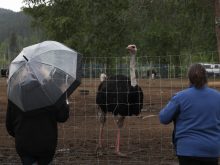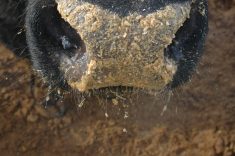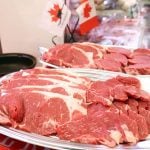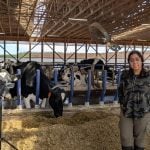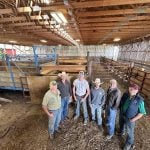Just hours ahead of a federal election call, the federal government has committed $500 million to cover its share of federal/provincial AgriRecovery support plans for drought-hit farmers across Canada’s West.
Shortly before Prime Minister Justin Trudeau’s visit Sunday to Rideau Hall seeking the dissolution of Parliament for a federal election, Agriculture Minister Marie-Claude Bibeau confirmed the federal government will provide its 60 per cent share to meet commitments made by affected provinces in recent weeks.
Ottawa and the British Columbia, Alberta, Saskatchewan, Manitoba and Ontario governments “continue to work with the utmost urgency to complete joint assessments of the disaster and launch support programs,” the government said.
Read Also
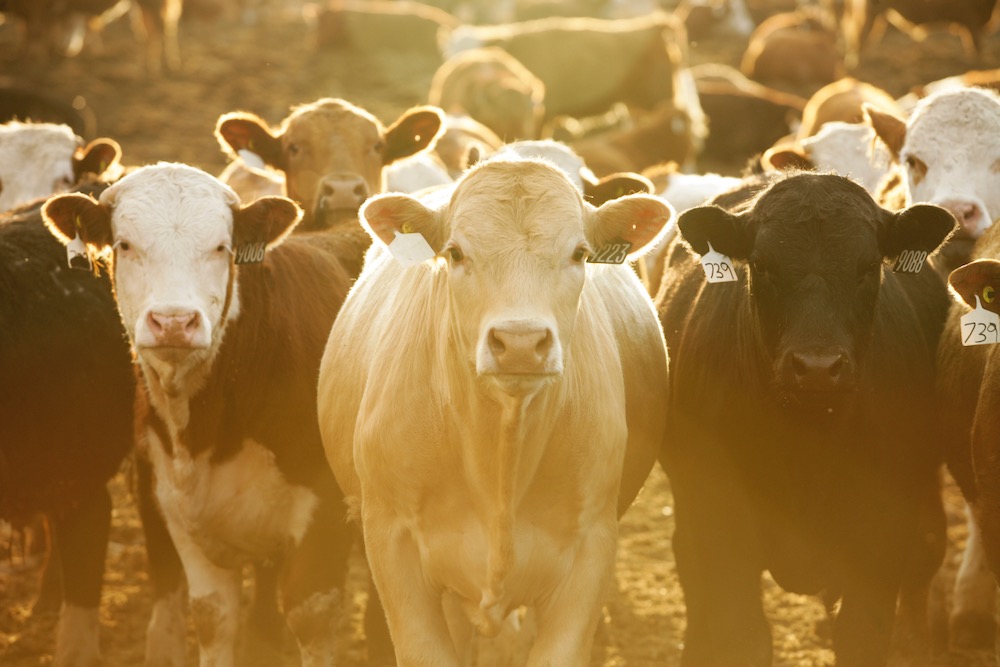
U.S. livestock: Cattle futures drop on Trump call for lower prices
Cattle futures on the Chicago Mercantile Exchange dropped sharply on Wednesday, reacting to comments from United States President Donald Trump…
“This will include direct assistance to affected livestock and agricultural producers, and help them with added costs of obtaining livestock feed, transportation and water.”
The $500 million announced Sunday includes the initial federal funding of $100 million announced Aug. 6.
Following the initial Aug. 6 announcement, Alberta announced that day it would put up $136 million toward an AgriRecovery plan for that province, followed Aug. 10 by Saskatchewan with $119 million, Manitoba with $62 million and Ontario with $5 million.
The B.C. government said Aug. 10 it’s working with Ottawa on an AgriRecovery plan but hasn’t yet announced its share.
Given the 60-40 cost-share for AgriRecovery under the Canadian Agricultural Partnership funding framework, the federal share to meet the provinces’ commitments so far would be up to $482.5 million, not yet counting British Columbia’s plan.
The final federal funding amounts to cover drought-hit farmers’ “eligible extraordinary costs” will be determined once joint assessments and program developments are completed, the federal government said Sunday.
“Today’s commitment of up to half a billion dollars shows we stand ready to contribute our share toward AgriRecovery programs with the provinces,” Bibeau said in Sunday’s release. “We are united in our goal of ensuring that farmers are fully supported through this crisis.”
Alberta’s AgriRecovery program, as proposed Aug. 6, would provide an “immediate” payment of $94 per head to help cover feed and water access costs for breeding female livestock, the province said. A second payment of $106 per head will be allocated later in the year, for a total of $200. Application details will follow “after the federal government reviews the proposal,” the province said.
Saskatchewan said Aug. 10 that with full federal participation, its AgriRecovery plan would also provide $200 per head to cattle producers, with one portion provided as an immediate per-head payment and the remainder issued later in the fiscal year based on year-end herd numbers.
Ontario said Aug. 10 its AgriRecovery program would seek to cover producer costs related to hay and other feeds, transportation of feed, transportation of animals to feed, measures to provide water to animals, temporary fencing and other “extraordinary costs” related to the drought in the province’s northwest. Ontario also estimated those at about $200 per head for cattle.
Manitoba, meanwhile. said its programs were “currently being developed” and would include funding for feed assistance, feed transportation, cattle transportation and a herd rebuilding program. — Glacier FarmMedia Network






